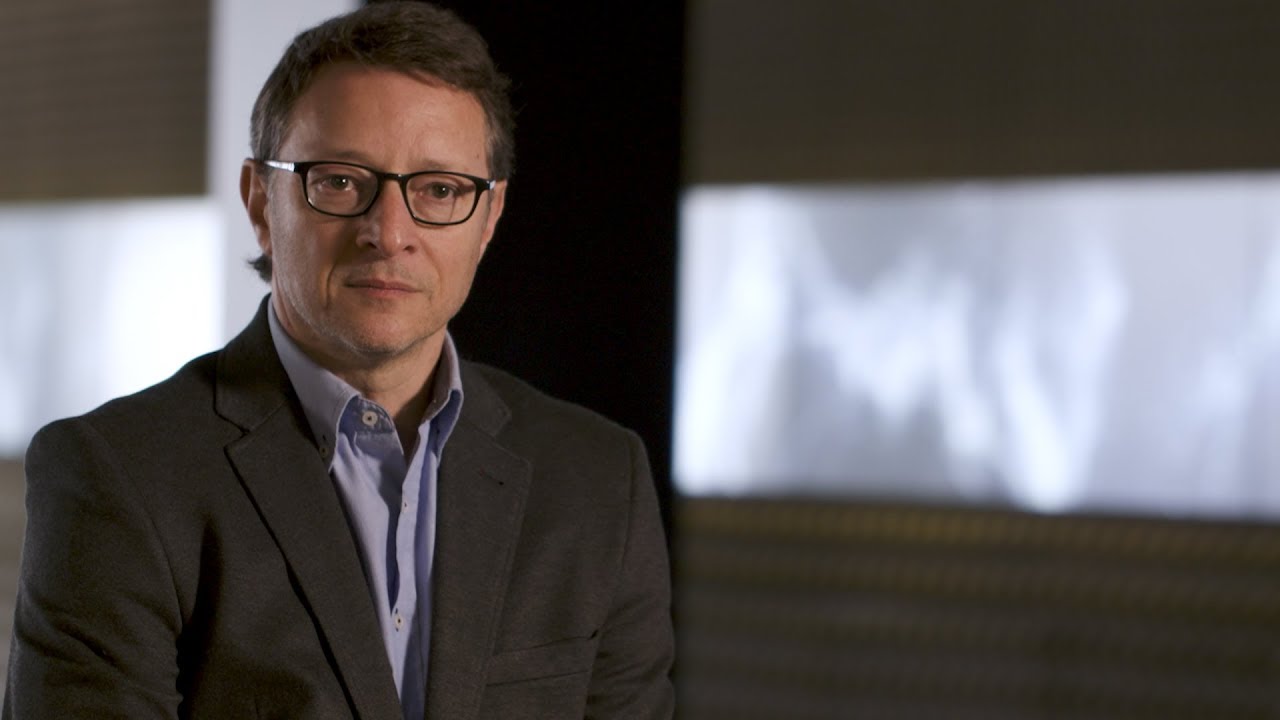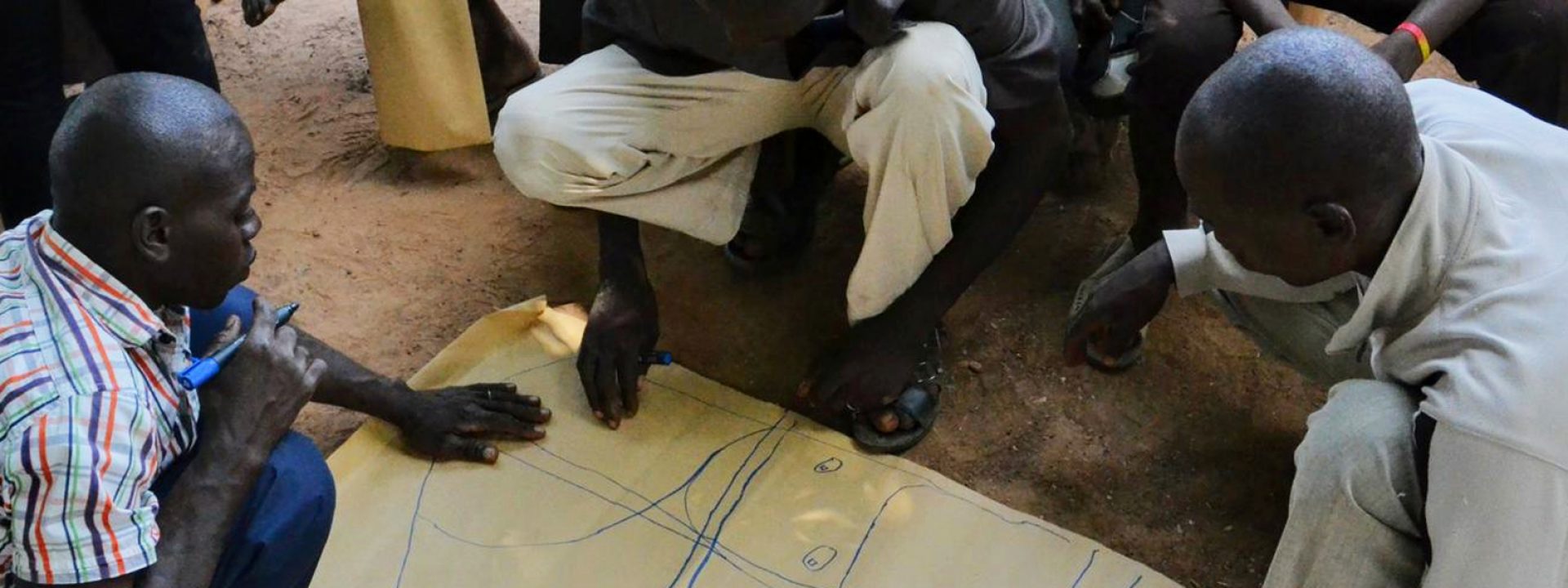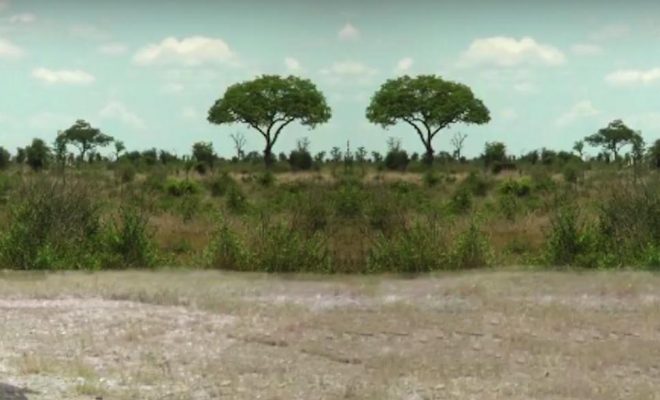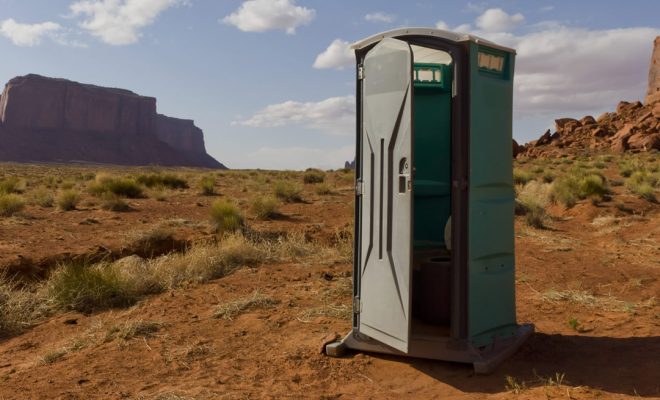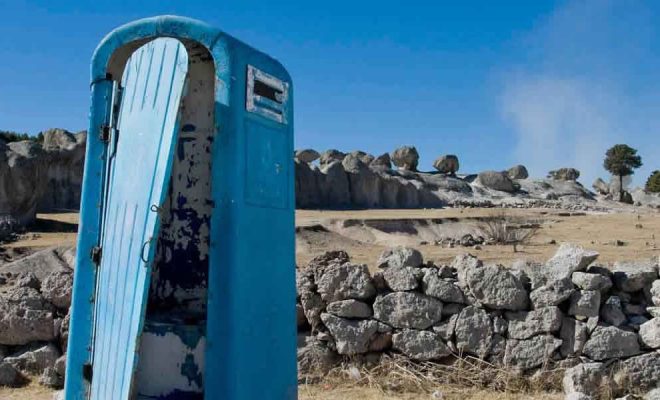Inviting the members of a community to see the “shit” or the “poo” – no euphemisms needed- that accumulates in the dirtiest areas of their neighbourhood, where people usually defecate in the open, and analysing the hygienic consequences of this practice is the first step of this new way of implementing latrine construction plans. In these cases, the aim of the facilitators of aid projects is to raise awareness by provoking a sense of shame, and from there on to promote the conviction that the community can obtain by itself the knowledge and means to end a scourge that causes diseases, childhood mortality and limits their possibilities of economic and social growth.
This is a provocative and non-interventionist way of confronting the community with the problem, leaving the decisions and actions to them. It is the first step taken by the facilitators of the CLTS approach (Community-Led Total Sanitation), which is being applied by the We Are Water Foundation and UNICEF in their new aid project in Burkina Faso.
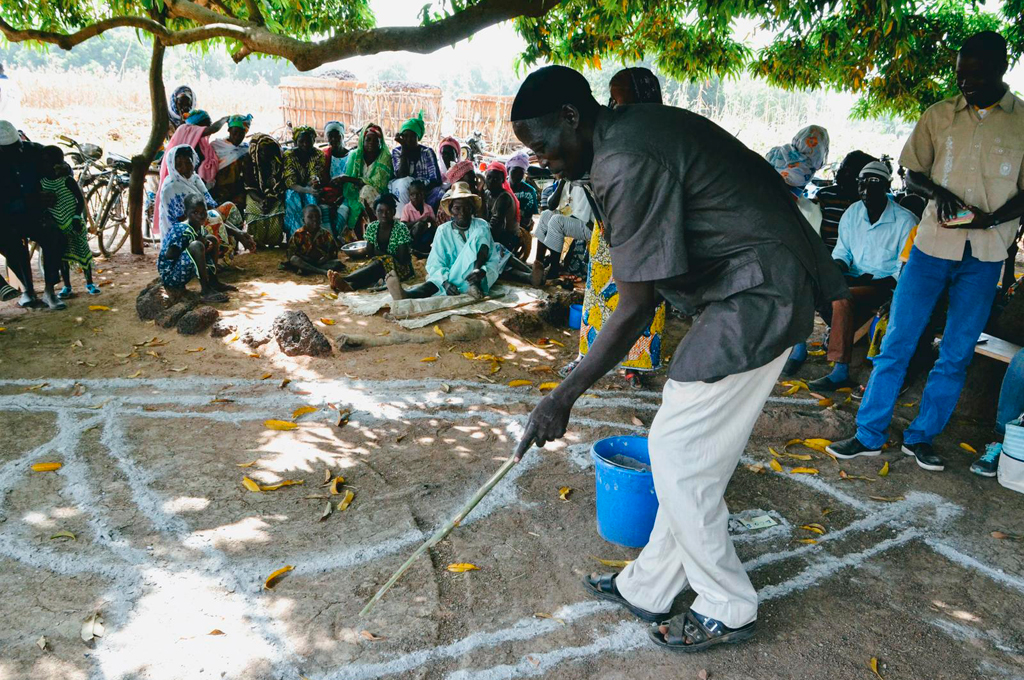
©UNICEF
Stopping chronic childhood diarrhoea
The project has been started in the Midwest region of the African country, an area with a very low rate of access to sanitation infrastructures (26%) and a very high percentage of open defecation (68%); problems that worsen with a very low rate of access to an improved water source (18%). Regarding the rural areas of the region, the rate of household access to sanitation infrastructures is reduced to 11.9%.
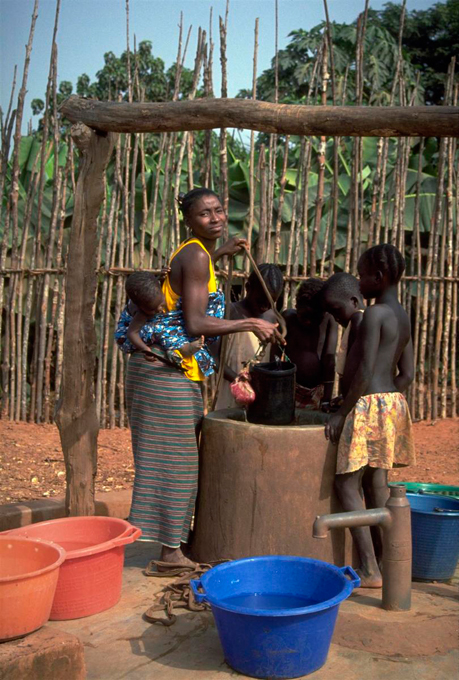
©UNICEF
This causes a high persistence of water-borne diseases amongst children. The prevalence of diarrhoea reaches 20.7% of children under the age of 5. These diseases are also one of the main causes of malnutrition: 10.4% of the children under the age of 5 suffer acute malnutrition. The aim of the project is to provide healthy conditions for children, as well as to promote improvements in their health throughout their lives.
Towards self-managed sanitation
CLTS is based on the participative approach that encourages the community to analyse its health and sanitation situation so as to be able to take decisions to build its own latrines and end open defecation. This methodology recognizes that the simple fact of building latrines does not guarantee their use and that a change in practices and attitudes towards sanitation and hygiene is needed, something that very often finds the opposition of the culture and habits of the population.
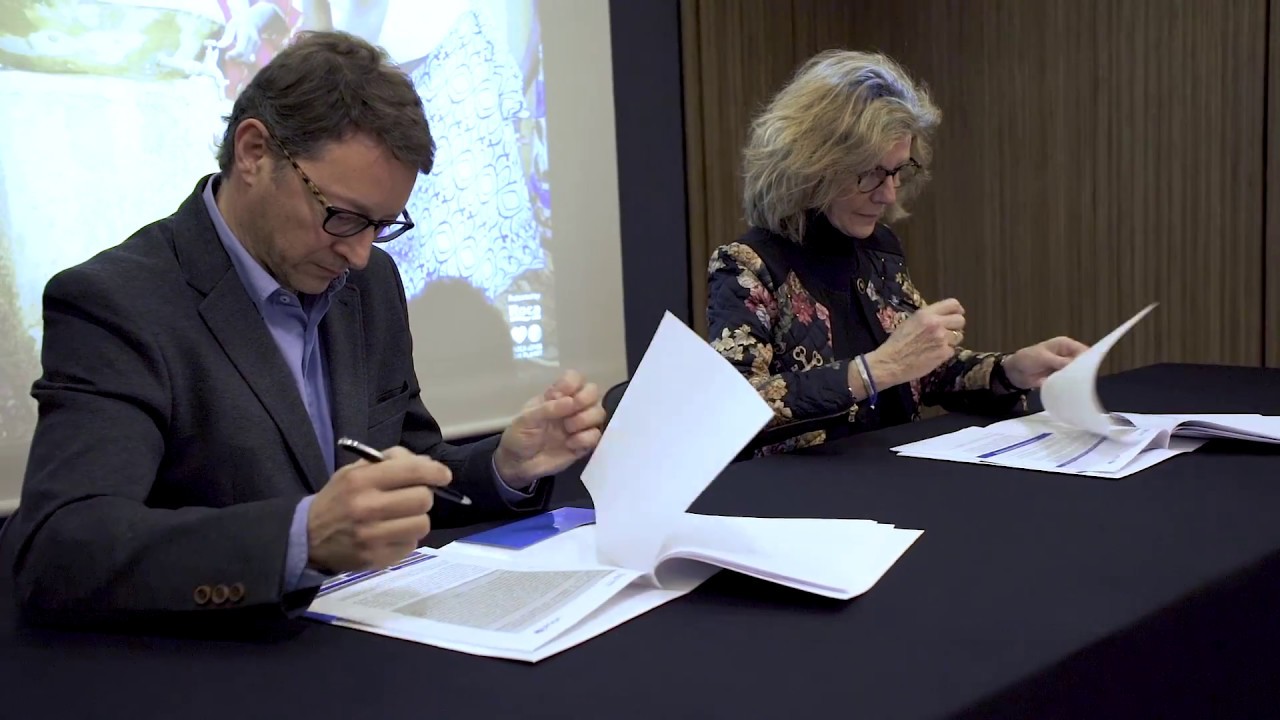
It is therefore essential to make the community aware of the poor hygienic-sanitary conditions of its surroundings and to force it to witness its consequences, so that it rejects its own practices, achieving a change in them.
From that moment on the facilitators of the project guide the community in the construction of latrines and sanitation systems with its own materials and resources; they provide information on their maintenance and give advice on the creation of committees to promote hygienic practices, especially among children.In this way, it is possible to create sustainable infrastructures and habits that are acquired by the community culture without opposition.
UNICEF and the We Are Water Foundation: a renewed partnership
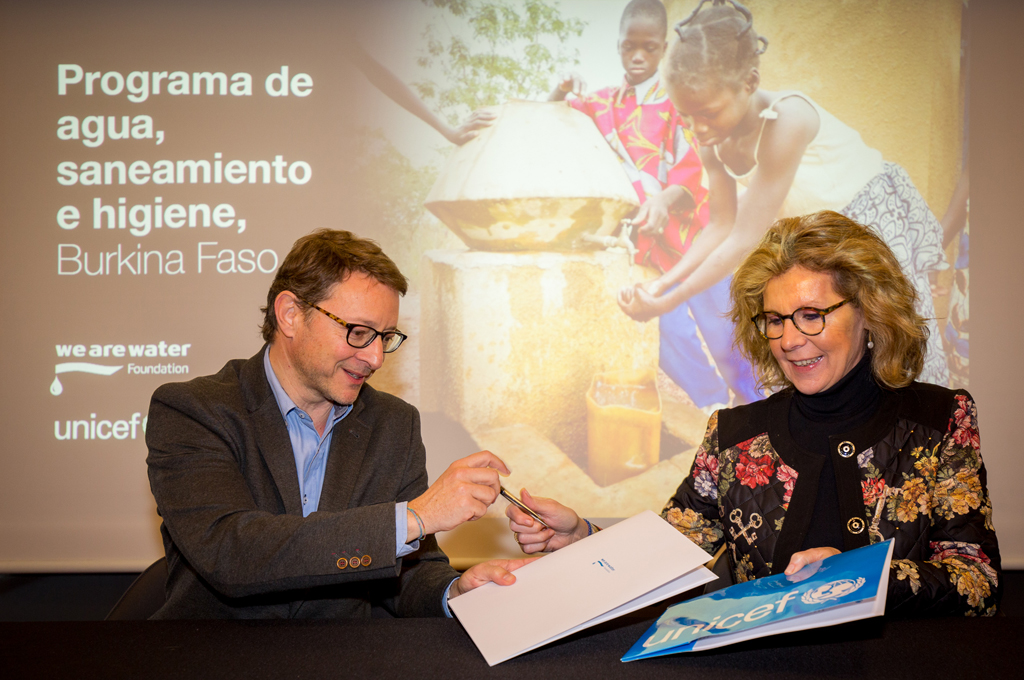
Xavier Torras, director of the We Are Water Foundation , andAnna Folch, president of UNICEF Catalonia at the signing ceremony, at the Roca Barcelona Gallery.
The new project, which aims to build at least 1,800 latrines, is part of a new phase of collaboration established by the We Are Water Foundation and UNICEF. After having developed four projects in the last eight years, both institutions have signed a new agreement to make further progress in achieving access to water, sanitation and hygiene for children, based on this new approach focused on the empowerment of the community.
At the signing ceremony, Anna Folch, president of UNICEF Catalonia, highlighted the key factor of this new project: “We need to raise awareness within communities so that they are empowered and able to solve their sanitation problems themselves. This is essential to alleviate child mortality caused by diseases that could be avoided with adequate access to water and sanitation.”
Folch valued the collaboration with the We Are Water Foundation: “In the last eight years this partnership has allowed us to work in many countries, improving the lives of many children and guaranteeing their rights. It is essential for UNICEF to continue joining forces and to collaborate with an institution like the We Are Water Foundation, whose goals are also those of UNICEF, is a guarantee of efficiency.”
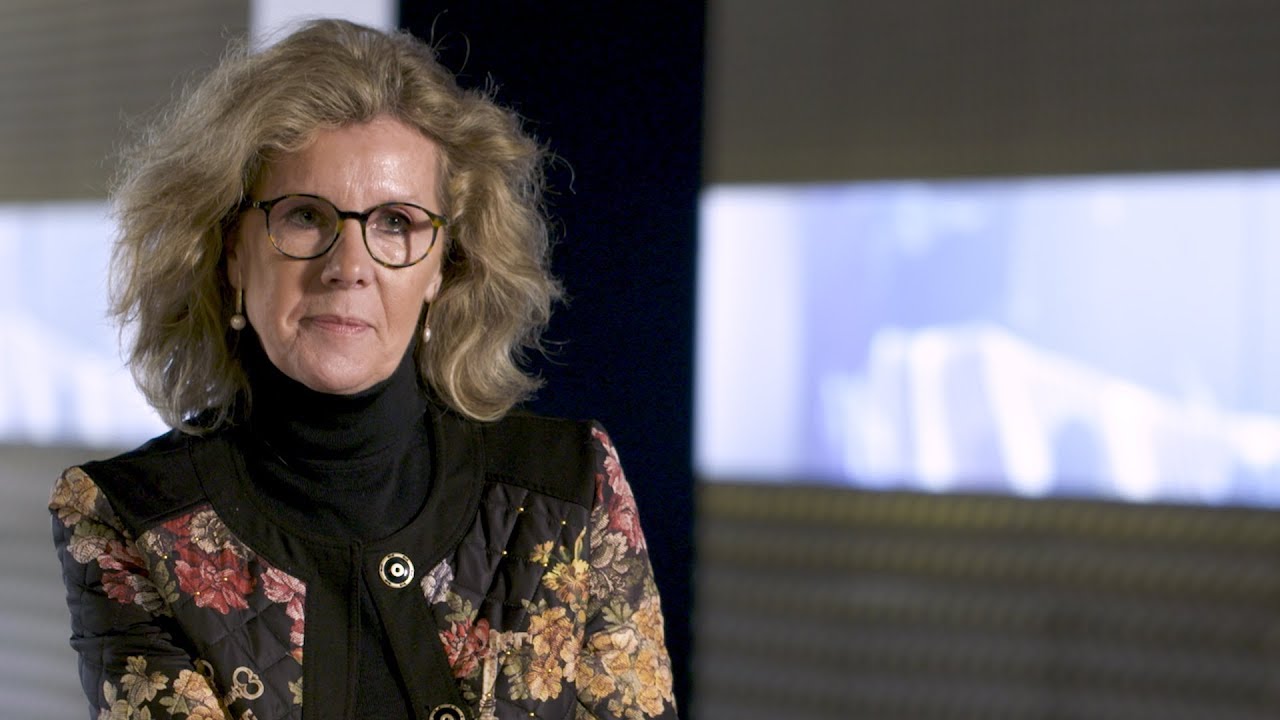
Xavier Torras, director of the We Are Water Foundation, highlighted the importance of making further progress in the development of new sanitation solutions such as those included in the new project: “Sanitation is one of the most backward areas today. 2.5 billion people around the world do not have access to adequate sanitation and we intend to have a very significant impact in this area. We look forward to renewing our collaboration with UNICEF; the project in Burkina Faso is very important for communities to be aware of their capacity to act, avoiding the neglect of the facilities. UNICEF is able to make the cultural changes that are essential to achieve this.”
